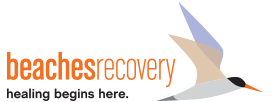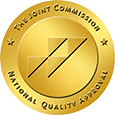
About Family Counseling
Family counseling is used for a variety of issues that creep up among loved ones. It can include death or a loss within the family, trust issues, issues related to physical or emotional abuse and addiction. In the case of addiction related family counseling, there are several things that usually need to be addressed.
First, there could be issues related to codependency. Codependency is defined as the act of giving support or enabling a person to do something, in this case abusing substances, that could be harmful. As enablers, family members are giving their loved one the chance to use drugs or alcohol without restraint. This is usually done because of the fear of losing contact or the trust of the loved ones.
Secondly, family counseling is often used as a means to educate family members about the effects of drugs and the dangers of long-term abuse. This affords counselors a chance to help build a strong, family support group. During the counseling process, family members are trained to help their loved one cope with life issues without having to turn to drugs.
Finally, and perhaps most importantly, counseling is used to collect important information about the patient. Patients are not always cooperative. This leaves gaps of information needed by addiction therapists. The closer a counselor can get to the root cause of an addiction, the better able they will be to treat it.
The Importance of Family Counseling
When patients enter treatment, friends and co-workers sometimes have jumped ship. The tenuous nature of those types of relationships makes tolerance of drug or alcohol use less likely. Like it or not, family members, especially blood-related family members, will be connected for life. It’s the bond of blood that makes it possible for family members to stick around during hard times. They do so in the hope they can help and perhaps make a difference.
Given the importance of ongoing family support, it’s a shame more rehab facilities don’t put more focus on this type of counseling. Fortunately, Beaches Recovery in Jacksonville, Florida, provides a viable residential family treatment program when indicated.
About Beaches Recovery’s Treatment Options
As a top-rated drug and alcohol treatment facility, Beaches Recovery works hard to provide custom treatment programs for its patients. Here are a few of the most popular options:
- Intensive outpatient program
- Residential treatment and extended care
- Partial hospitalization program
- Primary care
- Aftercare programs that include sober and transitional living
Of course, our facility’s family residential treatment program is popular among families looking to help one another and keep the family unit together. The program includes individual treatment for all family members, as well as family group sessions designed to help mend fences and build support mechanisms.
If your addiction is hurting your life and key relationships with family members, you need help as a family. We want to offer you a family counseling program that will help set you on the path to recovery while mending fences in the process. With the full support of your family, your chances of entering a recovery phase and maintaining abstinence are greatly enhanced. For the sake of your life and family, contact Beaches Recovery at 8666050532.

